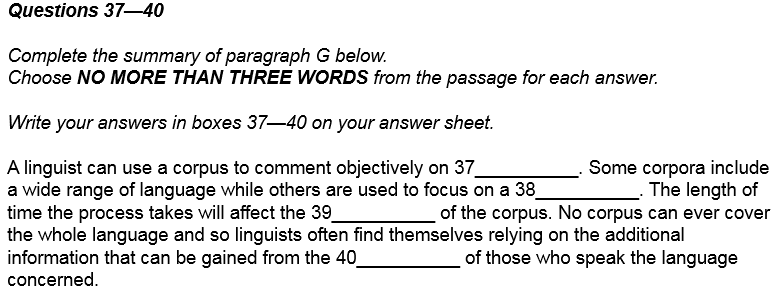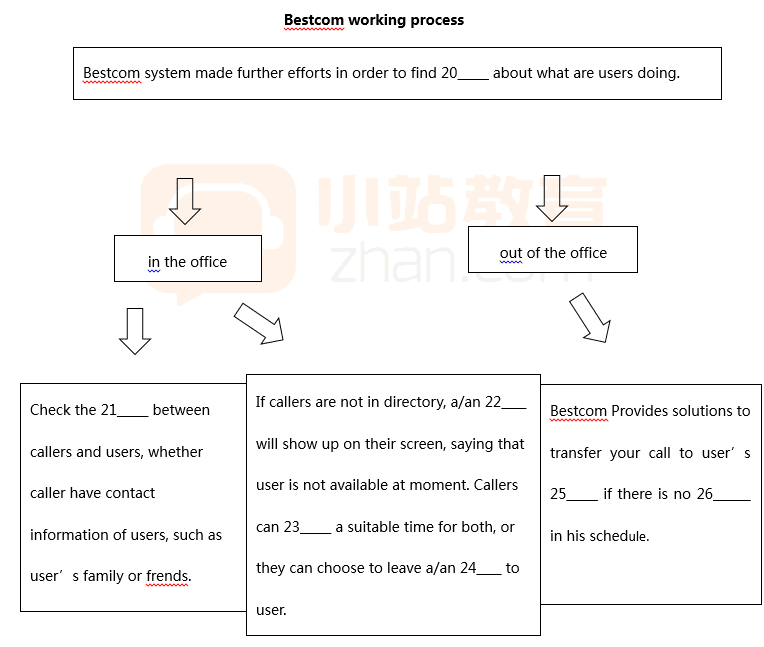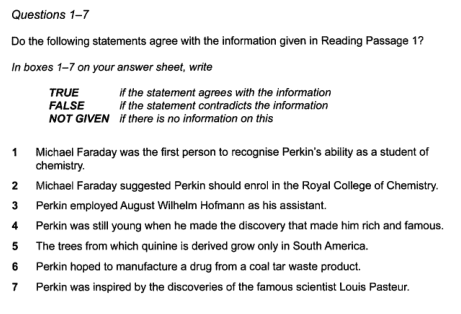雅思阅读考试中很容易遇到生僻词是不可避免的事情,那么雅思阅读遇到生僻词怎么办,下面小编就和大家分享雅思阅读遇到生僻词怎么办,希望能够帮助到大家,来欣赏一下吧。
雅思阅读遇到生僻词怎么办
举例1:Husband:it's really cold out tonight.Wife: Sure it is. My hands are practically numb.How about lighting the furnace?
根据生活经验,天气寒冷时,手肯定是"冻僵的,冻得麻木的"。
在猜测词义过程中,除了使用上面提到的一些雅思阅读技巧,参加雅思考试的学生还可以依靠构词方面的知识,从生词本身猜测词义。
1.根据复合词的各部分猜测词义例如:
Growing economic problems were highlighted by a slowdown in oil output.Hightlight或许是一个生词,但是分析该词结构后,就能推测出其含义。它是由high(高的,强的)和light(光线)两部分组成,合在一起便是"以强光照射,使突出"的意思。
Bullfight is very popular in Spain.Bull(公牛)和fight(打,搏斗)结合在一起,指一种在西班牙颇为流行的体育运动---斗牛。
“雅思阅读生僻词技巧”
2.根据前缀猜测词义例如:
He fell into a ditch and lay there, semiconscious, for a few minutes。根据词根conscious(清醒的,有意识的),结合前缀semi(半,部分的,不完全的),我们便可猜出semiconscious 词义"半清醒的,半昏迷的"。
I'm illiterate about such things。词根literate意为"有文化修养的,通晓的",前缀il表示否定,因此illiterate指"一窍不通,不知道的"。
3.根据后缀猜测词义例如:
Insecticide is applied where it is needed。后缀cide表示"杀者,杀灭剂",结合大家熟悉的词根insect(昆虫),不难猜出insecticide意为"杀虫剂"。
语言环境对于记单词是一个非常重要的因素,只有通过一定的语言环境,去理解词的内涵,甚至是其表达方式的文化背景。雅思考试中如果遇到生僻词不要紧张重要的是你平时的积累以及掌握能力,任何一门知识只有真正被吸收了才是真正的获得。
雅思阅读材料:什么东东决定着你的印象分
When a person meets you for the first time they ask themselves two questions. The answers to these two questions will have all sorts of knock-on effects for how they think about you and how they behave towards you。
当别人与你次见面,他们都会问自己两个问题。这两个问题所得出答案决定了他们对你的看法和行动。
Professor Susan Fiske of Princeton University has shown that all social judgements can be boiled down to these two dimensions:
普林斯顿大学教授苏珊·菲斯克通过研究各种社会性判断,得出这些判断都能被总结成以下两个问题:
1.How warm is this person?
这个人有多热情?
The idea of warmth includes things like trustworthiness, friendliness, helpfulness, sociability and so on. Initial warmth judgements are made within a few seconds of meeting you。
热情的定义包括可信度、友好度、有益性、社交性等等。这种最初的热情与否的判断在你与他人见面后几秒钟内就能得到答案。
2.How competent is this person?
这个人有没有能力?
Competency judgements take longer to form and include things like intelligence, creativity, perceived ability and so on。
能力的判断需要花更长的时间来得出,能力包括了智力、创造力和领悟力等等。
Susan Fiske's research has looked at different cultures, times and types of social judgements, but these two concepts come up again and again in slightly different guises. Not only do we make these judgements about other people, but we frame their behaviour using these two questions。
苏珊·菲斯克教授的研究涵盖了不同的文化、不同的时代和不同类型的社会性判断,即使有细微差别,但是这两个问题一再地在研究中出现。我们不但通过这两个问题来判断别人,而且会做出相应的行为动作。
The primacy of warmth and competence may reflect evolved, instinctual reactions to these two questions about others:
关于热情和能力的最基本的判断会让我们做出直觉的反应,从而引申出下面的两个问题:
1.Friend or foe? Is this person going to hurt me or help me?
是敌是友?这个人是来害我的还是来助我的?
2.Capable of hurting or helping? Can this person help me if they're friendly or hurt me if they're not?
能不能害我/帮我?如果来人是友好的,能不能帮我?如果来者不善,会不会害我?
How warm and competent do other people find you? You probably know quite well how other people view you。
别人是如何看待你的?有多热情?有多少能力?答案你可能知道得很清楚。
雅思阅读材料:英国公交司机叫乘客“亲”面临被开
A bus company is warning drivers to not call passengers `babe` in a bid to avoid lawsuits from offended women.
英国一家公交公司提醒司机,不要称呼乘客“亲”,以防认为受辱的女性起诉。
Brighton & Hove Buses posted warnings to drivers in its head offices after a complaint from a woman who said she felt insulted by being called `babe` when she boarded a bus。
布赖顿和霍夫公交公司总部近日贴出了这则警告通知。事情的起因是公司接到一名女乘客投诉,称某次上车时,司机称呼她“亲”,她当时感觉受到了侮辱。
The company also warned drivers they could face the sack if they call passengers `love` or `darling`。
该公司还警告司机,如果对女乘客使用“亲”这类词汇,司机将面临被炒鱿鱼的风险。
One employee, who did not want to be named, said: `It`s just the height of political correctness. The drivers know how to best speak to customers。
一名不愿意透露姓名的司机说:“这样做实在是‘过头了’。司机们知道该怎么称呼乘客。”
`People don`t want their drivers to be robots. What is the world coming to when you can`t have a bit of friendly banter with passengers?`
“人们不会希望司机都像机器人一样。如果和乘客之间不能说笑,世界将会变得多么冷冰冰啊。”
The sign reads: `Please can drivers be aware that some of our customers may take offence at having terms such as "love", "darling" and "babe" directed towards them。
通知写道:“请司机注意,有些乘客认为被直呼‘亲爱的’、‘宝贝’、‘亲’是受到了侮辱。”
`This can be seen by some as being a sexist comment, as a recent complaint has highlighted.`
“这对有些人来说有性意味,就像最近的一起投诉提到的那样。”
Managing director Roger French said: `A lady complained to us that she thought the language used by a driver was demeaning to her。
总经理罗杰·弗兰齐说:“有位女士向我们投诉,她认为司机使用这样的语言对她是种侮辱。”
`We take a lot of customer feedback so we thought we would pass this on. The drivers will understand and take it in good spirit.`
“我们接到了很多顾客反馈,所以我们觉得应该这样做。司机们会理解,并且愉快地接受。”
雅思阅读遇到生僻词怎么办
上一篇:雅思阅读速度慢是什么原因
下一篇:托福阅读:阅读题型和备考攻略






